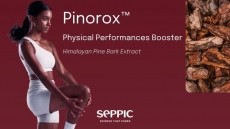Chewable beetroot supplement may boost cognition, memory: Human data

Four beetroot-based chewable tablets containing 3 g of a Beta vulgaris extract were associated with a 21% improvement in immediate memory capacity and a 12% improvement in delayed memory capacity, compared to placebo.
In addition, a 3% improvement in frontal lobe functions and an 11% improvement in cognitive flexibility were detected after supplementation of the RedNite brand of chewable beetroot, marketed by Enovate Biolife (Wilmington, DE, USA).
“The acute administration of a chewable BR-based supplement improves certain aspects of cognitive function in healthy females and males, particularly, memory capacity and frontal skills,” wrote scientists from the University of Magna Graecia (Italy), Universitè Libre de Bruxelles (Belgium), University of Calabria (Italy), and DBSS International (Colombia) in the European Journal of Nutrition.
“The results of this study contribute to the body of evidence that focuses on the effects of NO3− supplementation on cognitive performance.”
Beetroot
A lot of attention has focused on beetroot over the past decade for its potential cardiovascular benefits, linked to the nitrate content.
Recent studies have accelerated our understanding of the importance of nitrate in biological processes, including regulation of blood flow, blood pressure, cellular signaling, glucose homeostasis, and tissue responses to low oxygen levels (hypoxia).
Nitrate is one of the dietary ingredients endorsed by World Athletics as being generally regarded as boosting performance, and there have been reports of sports teams around the world adopting beetroot juice as part of their nutrition strategies.
The new study looked at the potential cognitive health benefits of beetroot consumption.
Study details
The researchers recruited 44 young health men and women (average age of 32.7) to participate in their double-blind randomized placebo-controlled two-period crossover clinical trial. The volunteers were randomly assigned to receive either four of the beetroot-based chewable tablets (BR-CT) or four placebo tablets (maltodextrin). This was followed by a four-day washout period and then the men and women crossed over to the other intervention. Brain tests were administered 90 minutes after ingestion of the interventions.
Results showed that, in addition to the significant improvements in immediate and delayed recalls, the beetroot supplementation was associated with significant improvements in frontal lobe functions and cognitive flexibility, compared to placebo.
On the other hand, no significant benefits were recorded for verbal memory of short-term digits, working memory and information processing speed, said the researchers.
In addition, there were mixed results reported for mood and anxiety.
“The improvements in frontal skills as well as lexical and memory capacity are elements that confirm an enhancement in general cognitive capacity,” said the researchers.
“Complementarily, the BR-CT supplement used in this study was well tolerated (it did not show any kind of undesirable or adverse effect) and even the palatability was appreciated. This latter aspect should not be underestimated, not only for what concerns the compliance in use, but also this has allowed a longer stay in the mouth with consequent greater exposure to the salivary microbiota, with the consequent possible greater conversion of NO3− into NO2− and absorption in the plasma circulation.
“It might be possible that the increase in cerebral blood flow, and thereby the higher nutrient supply, after the supplementation with the chewable NO3−-rich BR-based product might have impacted the cognitive performance.”
Source: European Journal of Nutrition
Published online ahead of print, doi: 10.1007/s00394-023-03265-y
“Acute effects of a chewable beetroot-based supplement on cognitive performance: a double-blind randomized placebo-controlled crossover clinical trial”
Authors: M.G. Vaccaro, et al.















